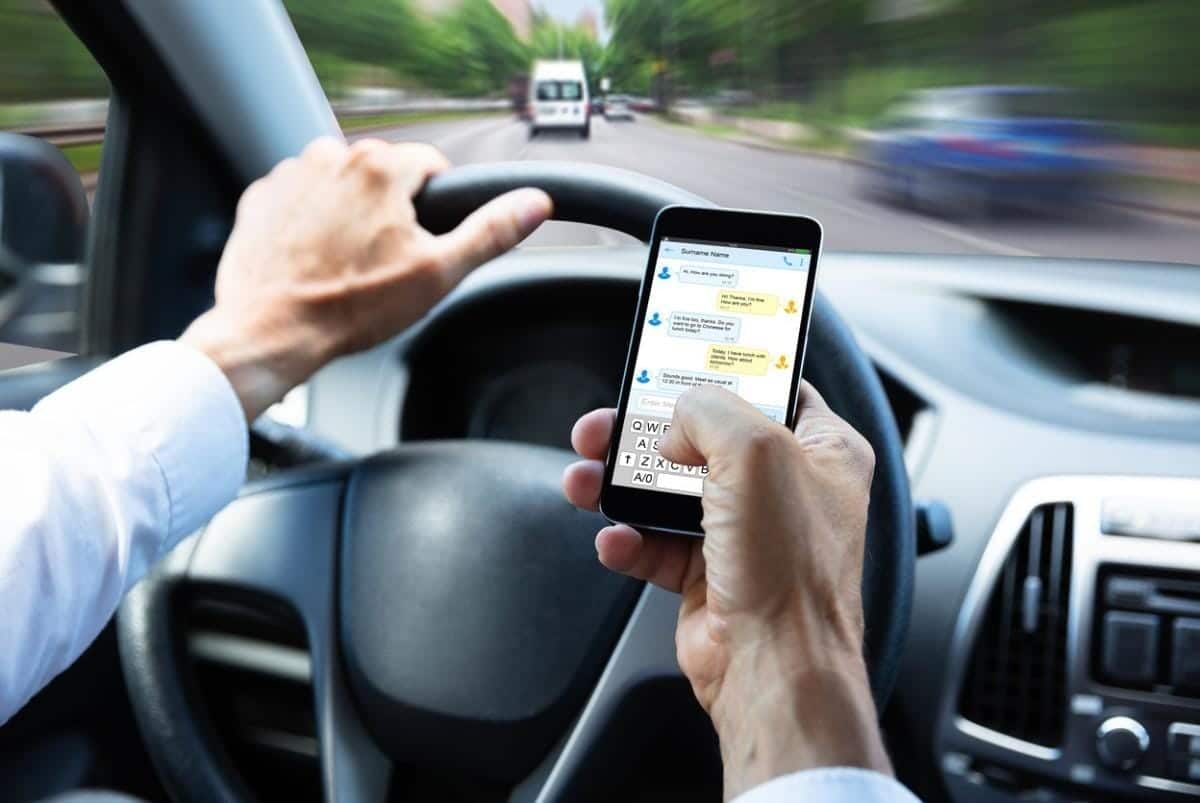We’ve all seen it, and perhaps even been tempted by it: a driver looking at their phone instead of the road. But distracted driving is more than just texting. The Centers for Disease Control and Prevention (CDC) categorizes distracted driving behaviors into three main types. Understanding these three types of distracted driving is crucial because any action that diverts your attention from the primary task of operating a vehicle safely can lead to devastating auto accidents. Safe driving demands your full concentration: eyes on the road, hands on the wheel, and mind engaged.
If you’ve been injured because another driver was not paying attention, a Michigan car accident attorney can help.
1. Visual Distractions: Taking Your Eyes Off the Road
A visual distraction is anything that causes you to look away from the path ahead, even for a mere second. That “split second” is often all it takes for a collision to occur. Common visual distractions include:
- Looking at a cell phone: This includes reading or sending texts, checking social media, or browsing the internet. Does texting contribute to auto injuries? The answer is a resounding yes.
- Adjusting vehicle controls: Fiddling with the GPS, radio, climate control, or other in-car technology.
- Looking at passengers or objects in the car: Turning to talk to someone in the backseat or looking at something on the passenger seat.
- Focusing on external scenery: “Rubbernecking” at an accident scene, looking at billboards, or being overly engrossed in sights outside the vehicle instead of the immediate driving environment.
Michigan has specific cell phone and texting laws to combat these dangers.
2. Manual Distractions: Taking Your Hands Off the Wheel
Manual distractions involve removing one or both hands from the steering wheel to do something else. This compromises your ability to react swiftly and maintain control of your vehicle. Examples of manual distractions are:
- Eating or drinking: Spilling a hot coffee or trying to unwrap a burger can easily lead to a loss of control.
- Reaching for an object: Grabbing for a fallen item, a purse, or something in the glove compartment.
- Personal grooming: Applying makeup, combing hair, or shaving.
- Holding a phone: Even if not actively texting or calling, simply holding a phone instead of the wheel is a manual distraction.
- Smoking: Lighting a cigarette or dealing with ashes.
Many modern vehicles have hands-free options, but even these can lead to other types of distractions.
3. Cognitive Distractions: Taking Your Mind Off Driving
Perhaps the most insidious of the three types of distracted driving, cognitive distractions occur when your mind wanders from the task of driving, even if your eyes are on the road and your hands are on the wheel. When you’re cognitively distracted, your brain isn’t fully processing the driving environment or potential hazards. Examples include:
- Daydreaming or being lost in thought.
- Engaging in a stressful or emotional conversation: This can be with a passenger or on a hands-free phone call.
- Intense focus on an audiobook or podcast.
- Worrying about personal problems or work issues.
- Road rage or feeling intense frustration with other drivers.
You might feel like you’re driving safely, but your reaction time can be significantly impaired. Knowing how to prove distracted driving can be crucial after an accident.
The Danger of Overlapping Distractions
It’s important to recognize that many distracting activities, like texting while driving, often involve all three types of distracted driving simultaneously:
- Visual: Looking at the phone screen.
- Manual: Holding the phone and typing.
- Cognitive: Thinking about the message instead of driving.
This combination makes such activities exceptionally dangerous and a leading cause of serious car crashes, which can result in injuries like traumatic brain injury or even wrongful death. Are distracted driving accidents in Michigan increasing with cell phone usage? Statistics often show a concerning trend.
Injured by a Distracted Driver in Michigan?
If you or a loved one has been injured in an accident caused by a driver engaging in any of these three types of distracted driving in Michigan, you may be entitled to compensation. The Joseph Dedvukaj Firm, P.C. has extensive experience representing victims of distracted driving accidents. Our personal injury lawyers can help you understand your rights and pursue the justice you deserve.
Call us today at 248-352-2110 or toll-free at 1-866-HIRE-JOE, or complete our Contact Form to schedule a free case review. We fight to hold negligent drivers accountable.


